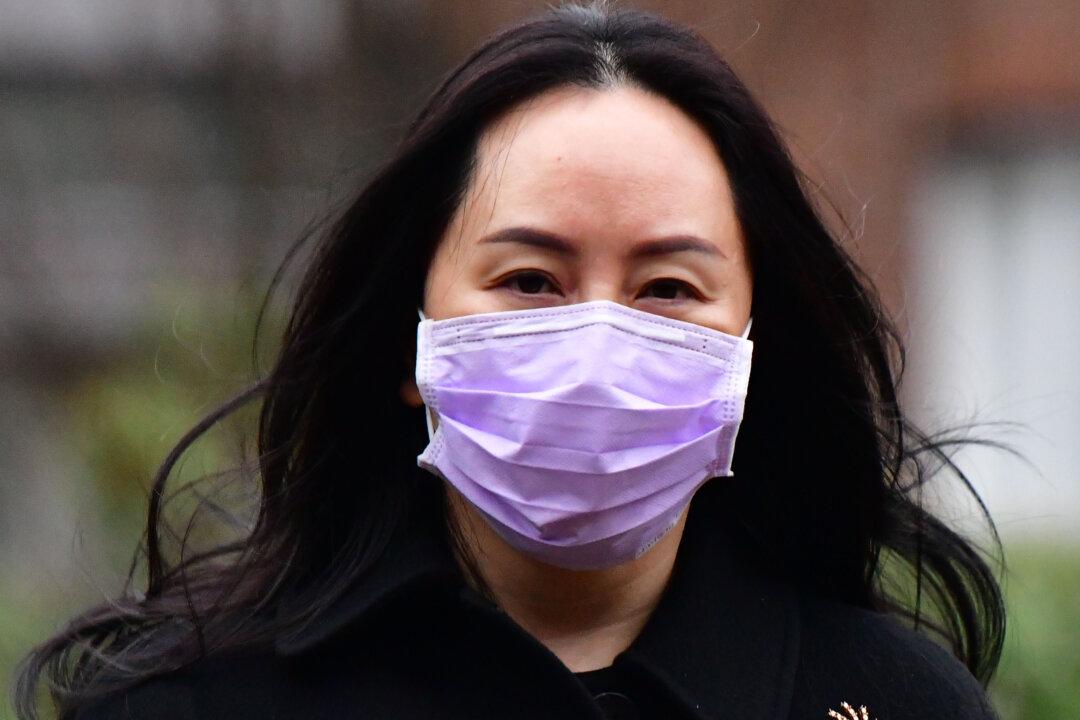Huawei senior executive Meng Wanzhou’s actions were part of a “coordinated plan” that exposed international bank HSBC to risks of economic prejudice, penalties, and losses, said a lawyer for Canada’s attorney general.
Robert Frater told the British Columbia Supreme Court that HSBC was entitled to make decisions about providing financial services based on “honest and forthright information,” but that opportunity was denied by Meng, whose “artful” presentation to the bank in 2013 omitted critical information about Huawei’s control over Skycom, a company that sold computer equipment in Iran.
Frater said the omission put the bank at risk of violating U.S. sanctions against Iran, and therefore amounted to fraud.
“The fact that other Huawei employees made similar representations to other banks shows in our submission a coordinated plan of reassurance of lenders, with Ms. Meng as an integral part of that plan of reassurance,” Frater said.
Meng and Huawei have denied all allegations of misleading HSBC.
On Thursday, Meng’s extradition hearing enters the second day of formal arguments, as lawyers for Canada’s attorney general, who represents the United States in this case, aim to convince the B.C. Supreme Court that she should face prosecution on American soil.
An extradition hearing is not a trial, but an “expeditious” proceeding to determine if a trial should be held, and weighing competing inferences is not a job for the extradition judge, Frater told the court on Wednesday.
Associate Chief Justice Heather Holmes, who is hearing the extradition case, is not tasked to determine if Meng is guilty, but to decide whether the United States has provided sufficient evidence to support a plausible case for such a verdict.
In order to be extradited, the court must find that the conduct of the person would be considered a crime in Canada had it occurred in this country.
“The evidence of dishonesty in this case we say is abundantly clear,” Frater said on Wednesday.
Even if Holmes rules Meng should be surrendered to the United States, the extradition isn’t certain. The ruling can still face appeals and the final decision, under the Extradition Act, rests with Canada’s justice minister.
Meng was arrested on a U.S. warrant at a Vancouver airport in December 2018 while en route to Mexico. As the chief financial officer for Huawei and daughter of the founder of the Chinese telecom giant, the arrest has significantly soured the Canada-China relationship.
Roughly a week after Meng’s arrest, Chinese officials arbitrarily detained two Canadians—Michael Spavor and Michael Kovrig—on charges of espionage, a move widely seen as a retaliation against Canada.
Spavor’s sentence came a day after the Higher People’s Court of Liaoning province in northeast China rejected an appeal by Robert Schellenberg, a Canadian who was sentenced to 15 years in prison for drug smuggling, but was abruptly increased to a death sentence in January 2019.
Kovrig stood trial in March, but there have been no signs of when a verdict might be announced.
Meng’s legal team has launched a series of arguments seeking to throw out her case. They claim that she was subjected to over 30 instances of misconduct or abuse in her case, ranging from political interference by former-U.S. president Donald Trump, to intentionally poor note-keeping by Canadian border officers and police involved in her arrest.
Holmes has not yet made a ruling on whether the allegations of abuse are valid. If she does, Meng’s defence has argued for a stay in proceedings that would secure her release.
Meng’s legal team is expected to respond to the government’s extradition arguments on Friday. The extradition hearing is set to wrap up by Aug. 20, although the judge may take months to prepare for a decision.





